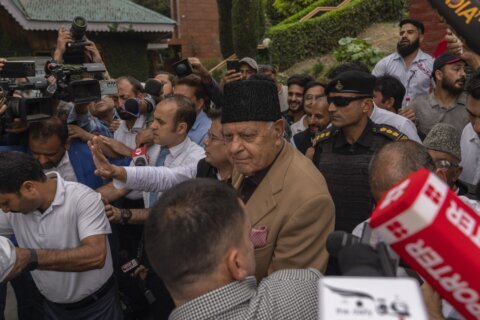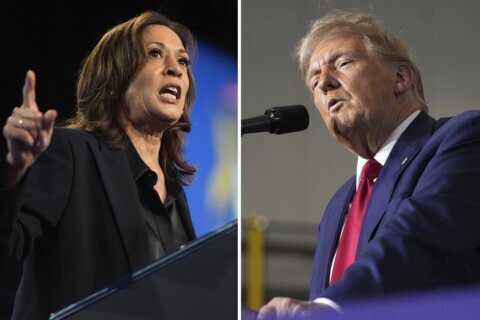When Joe Biden is sworn in as the 46th president of the United States on Jan. 20, he will inherit a Pandora’s box of labyrinthine geopolitical conflicts that will test the best intentions of America’s diplomats.
Nowhere is this truer than in the Middle East — a region known for its complex regional dynamics, great power competition and longstanding political feuds.
The selection of Antony Blinken to lead the U.S. Department of State is a clear indication the Biden administration intends to break decisively with Donald Trump-era policies by leveraging diplomacy as the principal tool for global statecraft. Biden’s national security advisor, Jake Sullivan, has additionally acknowledged opportunities in the Middle East to achieve economic, social and security progress, asserting that diplomacy could succeed where military force has failed.
Effective foreign policy requires regional allies on whom America can rely. Credible foreign partners will therefore be indispensable for the success of Biden’s team.
[MORE: Countries Seen to Have the Most International Influence]
Qatar — a small, energy-rich nation of 2.8 million — is one such ally. In addition to hosting 10,000 U.S. servicemen at CENTCOM’s forward headquarters near Doha, Qatar’s willingness to leverage its vast network of relationships with a diverse array of international actors in support of shared U.S. objectives makes it a uniquely valuable partner.
The State Department noted last month that “Qatar has played a constructive financial, political, and military role in addressing regional turmoil, and in partnership with the United States, has contributed to progress, stability, and prosperity in the region.” Moreover, they noted, “the United States and Qatar also cooperate on security in the Persian Gulf region.” U.S. Secretary of State Mike Pompeo underscored many of those sentiments during a meeting in September in Doha, when he observed that Qatar’s assistance in the Afghan negotiations was “only one of the ways that Qatar is promoting stability in the region.”
Qatar’s record of multilateral consensus building and engaged senior leadership, from Emir Tamim bin Hamad al Thani on down, has made it the go-to mediator in the Arab and Islamic world. According to Rice University’s Baker Institute for Public Policy, Doha has repeatedly demonstrated an ability to act as a “credible interlocutor” by providing the region a location that is near at hand, both in terms of distance and cultural affinity, where opposing parties can meet to work out their differences in a relatively impartial setting.
Able Qatari diplomats such as former Foreign Minister and current Minister of Defense Khalid al Attiyah have played important — if behind the scenes — roles as mediators in past conflicts, which include brokering cease-fires in Gaza, facilitating peace talks in Afghanistan, and securing the release of U.S. service member Bowe Bergdahl, an achievement made possible because of the efforts of Foreign Minister Mohammed bin Abdulrahman al Thani. As third-party intermediaries, they have been instrumental in helping to bridge differences in mutually acceptable ways.
Among today’s pressing regional disputes ripe for mediation are the Israeli-Palestinian conflict, the civil conflict in Ethiopia, and U.S.-Turkey tensions, where al Attiyah’s relationships in Ankara could prove dispositive. The right mediator could assist parties to these conflicts with the formulation of mutually beneficial solutions by bringing them together or shuttling between them and helping disputants reframe their concerns in terms of interests and needs rather than non-negotiable positions.
The advent of new leadership in Washington committed to embracing diplomacy, coupled with a decades-long Qatari policy that has emphasized relationship-building, cooperation and the advancement of peace, provides U.S. officials an opportune moment to consider the possibilities. The Jan. 5 decision by Gulf Cooperation Council members to reconcile with Qatar further enhances its diplomatic stature.
Henry Kissinger once observed that “When statesmen want to gain time, they offer to talk.” Given campaign pledges to reimagine historic partnerships and heal fractured relationships, Biden administration officials would be wise to enlist Qatari assistance in promoting Middle East dialogues.
The small but influential country has the experience, resources, connections, and credibility to convene regional peace processes and strike durable agreements.
All that’s missing now is an invitation.
More from U.S. News
Rights Groups Call to End Crackdowns Across Middle East, North Africa
Countries Seen to Have the Most International Influence
The 25 Best Countries in the World
Joe Biden Should Seek Assistance from Qatar in the Middle East originally appeared on usnews.com







